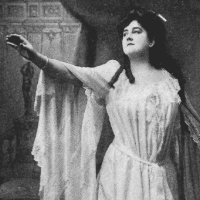 I love many kinds of music, including classical — especially modern classical, and particularly the music of Philip Glass. But despite my fandom of Glass and my adoration of his earliest work in opera, I have a confession to make:
I love many kinds of music, including classical — especially modern classical, and particularly the music of Philip Glass. But despite my fandom of Glass and my adoration of his earliest work in opera, I have a confession to make:
I really don’t care for opera.
I can’t say that I dislike opera, because I really love Glass’ Portrait Trilogy of operas: Einstein on the Beach, Akhnaten, and Satyagraha. Instead, I say that I dislike traditional opera… which includes much of Glass’ later opera work.
When I listen to an opera from the Trilogy, it is the music of Philip Glass that moves me. I am in it for the music and the way the vocals sound and the way they are expertly used as an instrument. Only second am I in it for the lyrics and story.
I agree that when listening to music, the meaning behind the lyrics and one’s feel for the story can often flavor the extent to which the music moves you — but even so, I’m in it for the music first. That other stuff — the lyrics and the story — when they are done well, they are just a happy extra.
But there are several things I often encounter in the vocals in traditional opera that ruin the music for me and which lead me to dislike traditional opera.
[Before I go any further I offer this caveat: I don’t claim to be an expert or student of music. I have strong opinions about what I like and don’t like, but these are just my organic, uneducated opinions. To any lover of opera or student of music reading this: I welcome you to snort derisively, shake your head, and tell me I don’t know what I’m talking about. That’s correct: I don’t. But I have a strong opinion about this.]
Vocals as a separate entity from the music
I enjoy most of the singing in the Trilogy, because it is sung as an integral part of the Glass music.
In contrast, often in what I call traditional opera, the story and the lyrics are given a higher priority than the actual music as opposed to being an integral part of the piece. It’s like the creator of the opera thought, “Yes, there might be the need for a moody arpeggio right here, but we can’t do that because this secondary character needs to finish expressing his disdain for clam chowder before our hero can expound on his disappointment in life before thrusting a sword into a piñata.”
And so the mood and the rightness of the music is sacrificed for the sake of the lyrics or story. All so a singer can rattle off a few long paragraphs of words that, even if they are in English, are rarely understandable as they are often indecipherably buried within too much vibrato.
And this separation of the vocals from the music is sometimes taken to a downright unpleasant degree. I am speaking of the way in traditional opera where words are sometimes half spoken and half sung over the music, called recitative, and I can barely count these vocals such as these as music at all. In fact, when this is in an opera, I usually find it incredibly annoying.
(A notable exception is the far more spoken, powerful way this is used in Glass’ Akhnaten)
There are far too many examples of this unpleasant strangely half-sung/half-spoken recitative vocalizing in opera, but one that I recently encountered was in the opera Exterminating Angel, by Thomas Adès (libretto by Tom Cairns in collaboration with Adès). This opera is based on the 1962 film of the same name by Luis Buñuel — a film I dearly love. When the Met recently offered a free stream of this opera, I was very glad for the opportunity to see it. But it began with so much of what I find hard to take in traditional opera that I lasted only about 10 minutes before stopping. Here’s an excerpt:
I’ve encountered this in some later Glass operas as well, including In the Penal Colony, Juniper Tree, and others. Hence, while I deeply adore his Trilogy, I cannot say I like all of Glass’ operas, as I find many of his later works to be too traditional.
Now, I frequently enjoy the occasional arias even in traditional operas. Arias are like separate songs within the larger piece and are typically actually sung and may be quite beautiful. And so, apologies to Adès and Cairns for my inability to get more than 10 minutes into your opera: perhaps there is a gorgeous aria or two in Exterminating Angel, but I couldn’t stick around to find out.
The shrill soprano
Another reason I tend to dislike traditional opera is that they so often feature an overabundance of sopranos. The higher the pitch, the worse it is, such that too much of anyone singing at a pitch higher than contralto just serves to make a piece downright unpleasant.
While there are indeed some soprano parts in Glass’ trilogy (especially Akhnaten), there are many non-soprano parts, including the leads.
One encounters sopranos in many operas, but the shrill soprano with the exaggerated vibrato so emblematic of traditional opera is sure to make me recoil… right out of the opera house.